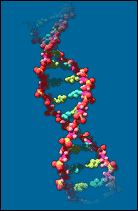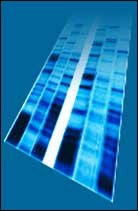
|
Stories
|
Shirley's Story I am a fifty four year old primary school teacher living in North London. This sounds terribly dull. Fortunately I don't find it so. Anyway I've always felt slightly different, well leastways ever since I was told at the age of nine that I had been conceived through 'A.I.D.', as it was then known. Artificial Insemination by Donor. A family friend told me at the behest of my mother who hovered anxiously in the background. 'Uncle Eric' sat me on his knee and told me that I had been conceived in the same way that cows conceived calves. He explained this process a little but I pretended that I already knew as I was never one to admit ignorance. Memories are strange and changeable. Crystal clear but not to be fully trusted. But as I see this occasion now, I remember an acute embarrassment at being on someone's knee. I was far too old and I felt awkward and big. I stared at the privet hedge very hard as I was given this new, gobstopper sized piece of information. If I stared hard enough at the familiar shape everything would be normal. It didn't work. At the end of 'Uncle Eric's' little chat I knew that my dad, or Ray as I was always encouraged to call him, was not really my father at all. This was the fifties, or maybe that drab decade was just edging into the sixties. I'm not sure but ordinary, decent folk didn't discuss feelings endlessly. 'Emotional literacy' had yet to displace 'least said, soonest mended' as a sensible way of surviving life's more uncomfortable bits. Anyway the reason I had been told was that Dad had Huntington's Disease. It was called Huntington's Chorea then. He had not yet been diagnosed but clearly all was not right in my dad's head or indeed body. Therefore, I had decided in pragmatic childish fashion that I would never have children as they might be like him. And he was the same as his mum who was also strange and clumsy: somewhere inside I was scared that I might end up like him. In fact maybe I already was. I certainly had a bad temper. Accordingly my mother thought that as I now knew that he was not my father, all would be well. I was not to tell anyone, not even my sister, not even my friends, not even my cousins. No one was ever to know. Just me, my mum and 'Uncle Eric'. And Dad mustn't know either or he would be very angry. I wanted out of that room, I wanted to be on my own. Alone. The next thing I remember is lying on my bed, face down on the dark pink candlewick bedspread that smelt faintly of dust. Clearly I was not God's child, like the whole of the human race. No, I belonged to the devil. I was given to self-dramatisation but I was undoubtedly very shocked. My sense of self had been shattered. I felt as though I had been kicked in the stomach, bewildered and confused. Who was I? Over time I extracted the information from Mum that the donor had been either a doctor or a policeman. He had three children of his own so it was known that he was healthy and normal. The blood line was pure. She did not know who he was and no one could ever find out and I wasn't to tell anyone. I did tell people as I was never an obedient child. I day dreamed that my donor father was a doctor in Emergency Ward Ten, an early medical soap. As I matured, slowly and not without ructions, into adolescence and early adulthood I imagined an avuncular, solid GP living in a four square 1920's house with appropriate foliage around the door. I would knock on his door - it would be a shiny brass knocker and the paint work would be green. The door would open and his round, placid face would break into a delighted smile........ I never developed the scenario any further. One spring day in 1972 I was picturing this familiar scene to myself on the walk to work. Suddenly I heard a big voice in my head telling me to stop. It was pointless. I never would find my father. That part of me would forever remain a blank. In the mid seventies I wrote to Mary Barton's clinic, where I had been conceived, to seek out information only to be told that the clinic had closed and all the records destroyed. Sometimes I would think that I would go to the other side of the world to find him, if I could. But it was impossible. And the empty space that should have been filled by the identity I had from my father was something I had to live with. Better than living with the fear of developing Huntington's. Better that many things that life deals out. But an emptiness, a lack of a sense of belonging in this world together with a resigned acceptance of the enigma of my biological father. Then, a couple or so years ago, I chanced upon an article about David Gollanz, Barry Stevens and other D.I. offspring. [I learned A.I.D. was old hat) and my heart leapt. Here were some people actively looking for their donor father. And they were conceived at the same clinic as me. Mary Barton's pioneering clinic in London. I contacted David through the DC Network . Meeting him was wonderful. I'd felt quite alone before. Then I spoke to Barry, a tenacious man with the instincts of a detective. In the forty odd years since I had been told of my origins science had made unimaginable strides. DNA had been discovered and tests become available to the general public. The daydream that I had dismissed thirty years earlier was now a possibility. Several negative DNA tests later, I was beginning to wish that I had never started on the quest. It was all too much of an emotional roller coaster. Then another DI offspring - about my age - found out who her donor father was. Envy is not a pretty emotion. Then on the 1st March 2004, I received the news I never thought possible. The euphoria I felt when I received the email message that J. and W were half siblings will remain with me as one of the most wonderful moments of my life. Speaking to W., my half sister conceived by the same donor as me, was extraordinary. Meeting J., the 'legitimate' offspring of my donor father was moving yet seemed completely natural. Of course, I don't want to intrude into his life. I'm just so grateful that he was prepared to give that little swab that has given me an identity. Now when I look in the mirror I tell myself, 'I am W'S daughter', and I smile. The little smile is one of quiet triumph. My donor dad is long dead; he died about the time that I decided that my daydream was best put away and reality accepted. Today I have a new daydream. I imagine him listening as I tell him I've found him against all the odds and thanking him for giving me life. A life that feels much more complete now that I know who my biological father was. |
|||||
|
||||||

